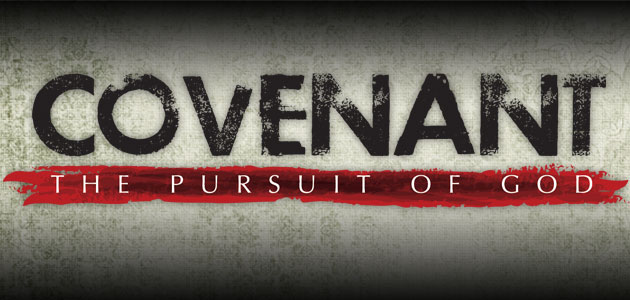Home | About Us | Directions | Bulletins | Sermons & Audio | Cross Of Christ Studies | Classes | Student and Parent Resource Page | Dangers Facing the "Non-Traditional"
Click Here for the Latest Edition of the Auburn Beacon
To Subscribe to
the Auburn Beacon please send an E-mail to:
larryrouse@aubeacon.com

Hear Buddy Payne
Speak in Auburn, Alabama
All Joy and Peace in Believing
![]()
![]()
Our God He is Alive
(Evidences from DNA)
![]()
![]()

The Final Stages of Israel's Apostasy
Adult
Bible Class in Progress - Sunday
Morning 9:30 - Auditorium Class
Planning to Visit Us?
What
to Expect
Current Class
Information
Thoughts To Ponder
Who also made us sufficient as ministers of the new covenant, not of the letter but of the Spirit; for the letter kills, but the Spirit gives life.
(2 Corinthians 3:6)
You will need
the following viewers
to view many of the
files on this site.
![]()
Click here to
download
Adobe Acrobat Reader
![]()
Click here to
download
Microsoft PowerPoint Viewer
University church of Christ
Assembly Times
Sunday
Bible Classes (9:30)
AM Worship (10:20)
PM Worship (6:00 pm)
Wednesday
Bible
Classes
(7:00 PM)
Location
449 North Gay Street
Auburn, AL 36830
Click Here for Specific
Directions
The Letter and the Spirit
by Edward O. Bragwell, Sr.
Earl Irvin West, in Volume 2 of his The Search For The Ancient Order (p. 250), introduces a chapter called "Prophets of Liberalism," with an astute observation about what he calls "seeds of liberalism":
Whether in the halcyon days of the restoration there could be found the seeds of the later liberalism that swept the brotherhood, may be doubted. Certainly, however, it can never be questioned that these seeds are discovered buried deep in human nature. There are always those who believe they sense something in the "spirit" of a thing contrary to what may be found in its "letter," or, who, reacting against what they consider a radical extreme of isolationism devote their energies to popularizing a movement. The restoration period came to know these individuals following the war between the states. The church appeared to them to be too narrow and restricted, and their ambition therefore was to lift the brotherhood to a "dignified church" in a world of denominationalism, commanding at least some respect from these religious bodies.
I believe West correctly assesses the beginnings of liberalism. It is thinking that interpreting and/or applying law to the "letter" is unnecessarily restrictive, exclusive, or even harsh. So, the liberal thinker turns to something called the "spirit of the law" to relax the restrictions and harshness imposed by the "letter." He may freely admit that the actual wording of the sacred text, strictly applied, would demand a certain thing. However, he appeals to a higher (?) court called "the spirit of the law" for a broader application than the actual wording would permit. Having dismissed the objective "letter," in favor of the more subjective "spirit," he can now freely adjust to the situation at hand. In reality, his so called "spirit of the law" is nothing more than his subjective view of what the law should be.
If God's word does not mean exactly what it says; and if we do not need to follow it exactly, then we are free to believe and do as we jolly well please, which is what a true liberal does, convincing himself that he is justified because he is within the flexible boundaries of the "spirit of the law" - which boundaries he and his liberal cohorts define and redefine as the situation warrants.
It is not unusual for these, "Prophets of Liberalism" to appeal to the Lord and his word to defend their stance. They see our Lord as one more interested in the "spirit" while the Pharisees insisted on the "letter." They are not at all bashful about comparing modern day "conservatives," who insist on doing exactly what the text says on every subject, to the Pharisees.
To me, it is the height of absurdity to suggest, as I recently heard one preacher do, that the Pharisees were the "conservative church" of that day who really wanted to do just what the law said. They were no such thing. They demanded that others do exactly what their traditions said, while they themselves would not take their own medicine (cf. Matt. 23:4). Where is the passage where Jesus ever criticized a Pharisee for being hung up on "the letter of the law"? He criticized their hypocrisy, their inconsistency (Matt. 23) and their making void the commandment of God by their tradition (Matt. 15:1-7), but never their strict application of the law itself.
Jesus' rejection of the Pharisees' sabbath traditions is freely used to illustrate Jesus' rejection of the "letter" in favor of the "spirit." The truth is that the "letter" of the Old Testament did not forbid the kind of things that Jesus and his apostles did on the sabbath. It was the "traditions of the elders" (which were often inconsistently and hypocritically applied) that forbade such things.
Jesus expresses his attitude toward keeping the law to his disciples in the Sermon On The Mount. He not only insisted on personally fulfilling the law down to the smallest letter (jot) and the smallest marking (tittle) (Matt. 5:18), he warned his disciples that by breaking the "least of these commandments" and teaching men so, they would forfeit their entrance into the kingdom of God (Matt. 5:19).
The Bible really says nothing about obeying either the "spirit of law" or "letter of law." It simply speaks of obedience. Some think they have found a distinction between the "letter of the law" and the "spirit of the law" in 2 Corinthians 3. However, a close look at the chapter should make it clear that two laws are being contrasted rather than two methods of interpreting and/or applying law. Notice verses 6, 7 and 8:
Who also made us sufficient ministers of the new covenant; not of the letter, but of the spirit: for the letter kills, but the spirit gives fife. But if the ministry of death, written and engraved in stones, was glorious, so that the children of Israel could not look steadily at the face of Moses because of the glory of his countenance, which glory was passing away, how will the ministry of the Spirit not be more glorious?
The contrast is between the two Testaments - the Old (v. 14) which was written on stones (the letter) and the New written by the Spirit on the hearts of the apostles. The Old Testament (letter) was ushered in by the letters written and engraved on tablets of stone. The New Testament (spirit) was ushered in by the outpouring of the Spirit, engraving the New Testament on the apostles' hearts.
The "ministry of the new covenant" (v. 6) or "ministry of the Spirit" (v. 8) or "ministry of righteousness" (v. 9) is contrasted to "the ministry of death" (v. 7) or "ministry of condemnation" (v. 9) or "Old Testament" (v. 14). "The letter" that kills is the same as the "ministry of death" (vv. 6-17), while "the spirit" that gives life is the game as "ministry of the new covenant (testament)."
The rest of 2 Corinthians 3 is given to a contrast between the two covenants or testaments. The contrast is not between two methods or manners of interpreting and/or applying either testament, but a contrast between the two testaments themselves.
The Jew under the old system had to obey its requirements - those that applied both to his outward and inward conduct. The Pharisee often meticulously, to "the letter," if you please, applied those commands that affected outward conduct without doing the same with those commands that governed his inward conduct. Jesus said that he did what he should have done with the former without leaving the latter undone. We, under the new system, must “observe all things” commanded (Matt. 28:18), down to the last letter (cf. Matt. 5:19), that apply to both our inward and outward behavior.
That there are times when we will "miss the mark" (a meaning of the word translated "sin") and have to ask forgiveness, is admitted by all. We may even at times have to be patient and gentle with others who miss the mark. But that is a far cry from blurring the mark by invoking something called "the spirit of the law" that assumes that we have the liberty to loosely apply what the Book actually says.
Again, I maintain that the idea of "the spirit of the law" is not only not found the New Testament, it is nothing more than a device to set aside what the Bible really says in favor of each man subjectively deciding what the law should say.
The liberal mind may even convince himself he has as much respect for God's law as anyone, but it is just that he emphasizes the "spirit" rather than the "letter." But, the New Testament is given in words taught by the Holy Spirit (1 Cor. 2:12, 13). We are to live by "every word of God" (Luke 4:4). If we are not to live by the very wording of the Bible, the "letter of the law," if you please, then why not just toss the whole thing aside? Then we could decide, from scratch, for ourselves what God's will should be, without having to search through the "letter of the law" and then dismissing what we find in favor of the "spirit of the law" as we see it.
Guardian of Truth - February 2, 1989
Other Articles by Edward O. Bragwell, Sr.
A Convenient Doctrine
Cutting Wood and Restoring N. T. Christianity
About Christians Feeling Unworthy and Undone
Holding a Church Hostage
What Can God do?
Undercover Agents for Christ
Reformation or Transformation?
Be Careful With the Blame Game
Is Unrestricted Loyalty a Virtue?
A New Dogma
How to Raise a Heartache
The Right Baptism
Standing Alone
For Past Auburn Beacons go to:
www.aubeacon.com/Bulletins.htm
Anyone can join the mailing list for the Auburn Beacon! Send your request to:
larryrouse@aubeacon.com






